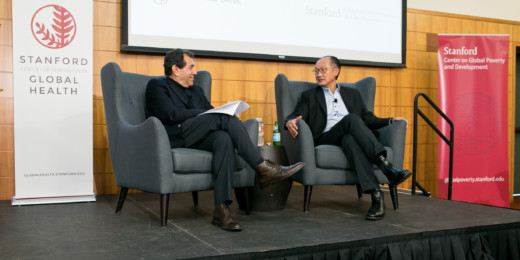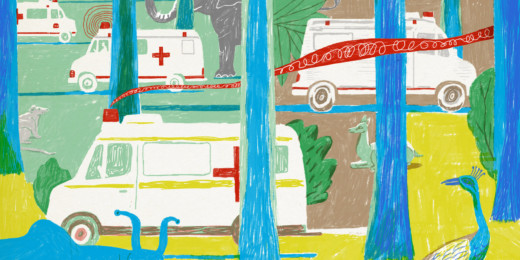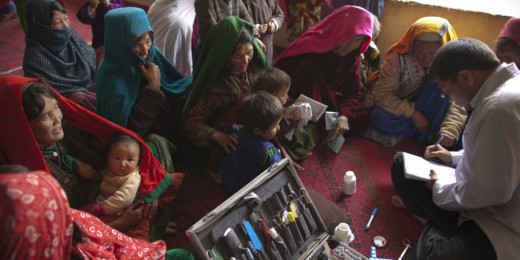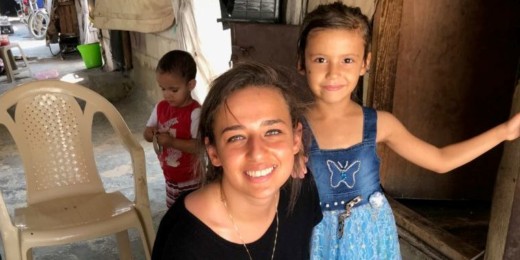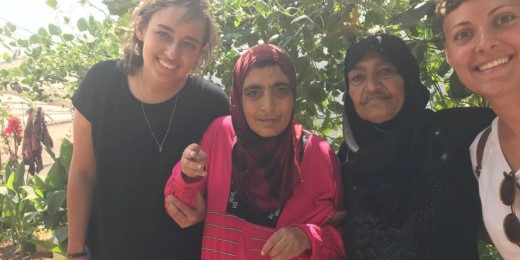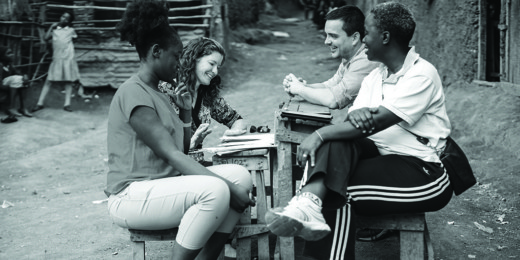A new book by Stanford researchersexamines China’s cigarette industry to understand the root causes of our global cigarette epidemic.
Category: Global Health
Stanford scientist is working to halt spread of hepatitis B
Decision scientist Mehlika Toy is working with the WHO to help eliminate the public health burden of hepatitis B by the year 2030.
World Bank Group leader addresses global health community at Stanford
Jim Yong Kim shared insights from his experience at the helm of global health and financing organizations at a recent address on campus.
From California, to the world: Stanford Medicine aims to help 2 billion people
The latest issue of Stanford Medicine magazine features an article describing international efforts to help 2 billion people globally by 2025.
Global Climate Action Summit: A focus on kids and climate
At the Global Climate Action Summit recently, Stanford researchers emphasized the importance of the effects of climate change on children's health.
Poor quality health care leads to 5 million deaths each year in poorer nations
A Lancet commission has found that poor quality health care causes millions of unnecessary deaths; the worst deficits were found in vulnerable populations.
Indirect child casualties of conflict far outnumber direct combatant deaths in Africa
A study's comprehensive analysis reveals the indirect child casualties due to warfare in Africa; their deaths far outweigh direct warfare deaths.
A billion guns worldwide drive public health crisis
The prevalence of suicide by firearm in the U.S. is just one of the many sobering statistics to emerge out of a new investigation of global gun violence.
Stanford surgeon works to improve care for civilians in conflict zones
The goal is to design a humanitarian surgical response in conflict zones to avert preventable disability and deaths through modern, evidence-based care.
Stars of Stanford Medicine: Empowering women globally
In this Stars of Stanford Medicine Q&A, obstetrics and gynecology resident Nichole Young-Lin discusses her interests and plans to help women worldwide.
Life on the border: Back at Stanford, ready to pitch in
In this final piece from Laila Soudi, she reflects on her travels near the Syrian border and her hopes for the Stanford Refugee Research Project.
Life on the border: Struggle, loss and desperation
Laila Soudi is documenting her experience traveling among Syrian refugees in the Middle East as part of the Stanford Refugee Research Project.
Life on the border: Not simply help but empower
Stanford's Laila Soudi is documenting her experience among Syrian refugees in the Middle East, where she and her team seek to not only listen, but empower refugees at the border.
Affordable projects tackle real-world problems in developing countries
In a popular course, Stanford students are using every day materials to create affordable projects to solve health related problems in the developing world.
Stopping sexual assaults depends, in part, on statisticians
Stanford statisticians are developing new techniques for understanding how and why sexual assault prevention programs work.
Life on the border: Struggling to survive in Jordan
Stanford's Laila Soudi is documenting her travels among Syrian refugees in the Middle East, where she is developing relationships to make a difference.




